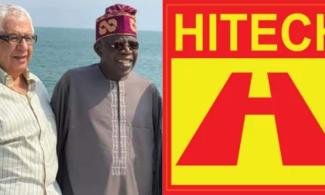Overview of the Project Funding
In a significant development for Nigeria’s infrastructure landscape, Hitech Construction Company Limited has received authorization from the Bureau of Public Procurement (BPP) to seek Federal Executive Council (FEC) approval for a monumental funding request. The company aims to secure over N1 trillion for the construction of a 47.5km section of the Lagos-Calabar Coastal Road, marking a pivotal phase in this extensive project. The segment in question will stretch from Ahmadu Bello Way to Eleko Village Area in the Lekki Peninsula.
Details of the Funding Request
The funding amount requested by Hitech Construction totals N1,101,771,271,871.01, which includes a 7.5% value-added tax. This financial figure is part of a broader effort to enhance Nigeria’s transportation network and facilitate economic growth along the coastal corridor. The BPP has issued a ‘Certificate Of No Objection For Award Of Contract’, indicating that Hitech’s proposal has satisfied all due diligence and procurement requirements, setting the stage for the next steps in governmental approval.
Financial Scrutiny and Cost Reduction
According to the BPP‘s review, the project cost was initially higher but was scaled down to N1,067,887,381,148.61 after a thorough assessment, achieving a cost reduction of N33,883,890,722.40. This adjustment reflects the government’s commitment to fiscal responsibility and ensuring that public funds are utilized effectively in national development projects.

Funding Source and Governmental Support
The project is set to be fully funded by the Federal Government, following an approval directly from the President. This decision underscores the national significance of the Lagos-Calabar road project, which is expected to bolster connectivity, reduce travel times, and support economic activities across multiple states. The funding confirmation was communicated through a State House letter, highlighting the strategic importance and high priority assigned to this infrastructure initiative.
Project Scope and Implementation Strategy
The Lagos-Calabar Coastal Road is an ambitious project that aims to provide a major artery for commerce and mobility along Nigeria’s southern coastline. The construction by Hitech Construction Company Limited involves sophisticated engineering techniques, especially considering the challenges posed by the coastal environment. The section from Ahmadu Bello Way to Eleko Village is critical due to its potential impact on easing traffic congestion in a rapidly developing area of Lagos State.
Controversies and Clarifications
The award of the contract to Hitech Construction without a competitive bidding process has stirred discussions and concerns about transparency and fairness in public procurement. However, the Minister of Works, Dave Umahi, has defended the decision, citing Hitech’s proven expertise and track record in managing complex coastal construction challenges, such as those encountered in previous projects like the Eko Atlantic City. The minister emphasized that the procurement followed legal frameworks which allow for direct negotiations with contractors possessing specialized skills.
Economic Implications and Future Projections
The successful completion of the Lagos-Calabar Coastal Road is anticipated to have a transformative effect on Nigeria’s economic landscape, particularly in terms of enhancing trade and tourism within the region. The road is expected to serve as a critical infrastructure backbone that will facilitate smoother transportation of goods and people, thereby contributing to economic diversification and resilience.
The approval from the BPP for Hitech Construction Company Limited to seek over N1 trillion in funding from the Nigerian government for the Lagos-Calabar Coastal Road project represents a significant milestone in the country’s infrastructural development. While the project has sparked debate regarding procurement practices, the overarching objective remains clear: to significantly enhance Nigeria’s road infrastructure, thereby driving economic growth and improving the quality of life for its citizens. As the project moves forward, it will be crucial to maintain transparency, ensure fiscal efficiency, and achieve the intended benefits of this substantial public investment.



